Cookies in use
Report
An Epidemic of Violence 2021
Fatal Violence Against Transgender and Gender Non-Conforming People in the United States in 2021
An Epidemic of Violence 2021
Table of Contents

FROM JAY BROWN
“Fatal violence against transgender and gender non-conforming people is the tragic result of a society that devalues our lives, with Black and Brown trans people facing significantly higher rates of harassment, bias and physical violence. This has been the deadliest year on record since we began tracking incidents of fatal violence in 2013. This year, we also saw anti-transgender lawmakers passing a record numbers of discriminatory bills, fueling more stigma against transgender and non-binary people, especially aimed at the youngest among us. This only fuels the stigma that too often ends our lives.
When lawmakers discuss bills banning transgender and non-binary youth from accessing medical care, playing school sports or using restrooms, it sends a message that even from an early age transgender and non-binary people are different and unwelcome. When media companies give a platform to transphobic content or fail to honor those we’ve lost with dignity in death, it sends a message that trans lives are not valuable. Racism, sexism and pervasive stigma against transgender and non-binary people are all deeply ingrained in our culture, creating a toxic reality for our community. But as we’ve seen from the past, society can change. It must.
As we once more honor our dead, we must continue fighting for the full equality and liberation of transgender and non-binary people."
Jay Brown (he/him) , Senior Vice President, Programs, Research & Training , Human Rights Campaign Foundation

FROM TORI COOPER
"In 2021, we’ve seen the highest number of transgender and gender non-conforming people killed in a single year since we began tracking these deaths in 2013. These victims had families and friends, hopes and dreams. None of them deserved to have their lives stolen by such horrific violence. Most of the victims were Black trans women, a reflection of the deaths are a tragedy and show an appalling trend of violence, especially against Black trans women. This horrific violence is fueled by racism, toxic masculinity, misogyny and transphobia. We need everyone to join us in empowering transgender leaders, building safer, stronger communities and reducing stigma. We cannot rest until all transgender and gender non-conforming people can live our lives safely as our full selves."
Tori Cooper (she/her) , Director of Community Engagement for the Transgender Justice Initiative , Human Rights Campaign Foundation
INTRODUCTION
At least 47 transgender and gender non-conforming people have been killed in the U.S. since the beginning of 2021.
We say “at least” because the stories detailed in this report very likely undercount the number of transgender and gender non-conforming people who were killed in the United States this year. Although advocates, bloggers and media groups have elevated the epidemic of violence against transgender and gender non-conforming people in the past several years, data collection is often incomplete or unreliable when it comes to violent and fatal crimes against transgender and gender non-conforming people. Some victims’ deaths may go unreported, while others may not be identified as transgender or gender non-conforming.
In this report, we shed light on the epidemic of violence taking the lives of transgender and gender non-conforming people. We remember the individuals who were taken from us in 2021 and provide analysis of data we have collected on fatal violence against transgender and gender non-conforming people since 2013 — the year the Federal Bureau of Investigation began reporting on hate crimes motivated by anti-transgender bias. As you will see, that data reveals disturbing trends. Finally, based on these statistics, we provide action items that can help end the violence.
Across the United States, stigma, bias and systemic discrimination heighten the vulnerability of transgender and gender non-conforming people from an early age. Over the course of the year, we have seen the community dehumanized in the name of comedy and state legislators have waged an assault on transgender people, especially transgender youth.
Nationwide in 2021, 25 anti-LGBTQ bills having been enacted, including 13 anti-transgender laws across 8 states. Overall, more than 130 anti-transgender bills were introduced across 33 states. Each of these marks has set a new record for anti-transgender legislation being introduced and enacted in a single state legislative session since the Human Rights Campaign began tracking legislation.
Such stigma, bias and discrimination compounds for transgender and gender non-conforming people who hold multiple marginalized identities. Transgender women and transgender people of color are at elevated risk of fatal violence. Such risk is especially true for Black transgender women, who comprise the vast majority of victims of fatal violence against transgender and gender non-conforming people as they face the daily injustices of racism, sexism and transphobia.
Even in the face of physical danger, hatred and discrimination — sometimes ruthlessly endorsed and enforced by those at the highest level of our government — transgender and gender non-conforming people live courageously and overcome unjust barriers in all corners of our country. In recent years, barriers have been broken by transgender and non-binary candidates like Danica Roem, Andrea Jenkins and Sarah McBride, and their victories have inspired even more transgender and non-binary candidates to run. However, until we as a country address and dismantle the barriers faced by transgender and gender non-conforming people, they will continue to face higher rates of discrimination, poverty, homelessness and violence. You can learn more about the multiple intersecting obstacles that transgender and gender non-conforming people face in the U.S. in the Human Rights Campaign Foundation’s report “Dismantling a Culture of Violence.”
In life, each of the individuals memorialized in this report went to extraordinary lengths to live authentically. In death, we must honor their truth and bravery with action.
WHO IS TRANSGENDER OR GENDER NON-CONFORMING?
For the purpose of this report, we use the phrase “transgender and gender non-conforming” to describe a collective community of individuals whose gender identities, expressions and/or lived experiences differ from — and may in fact transcend — what is typically associated with the sex they were assigned at birth.
This includes transgender men and women, as well as individuals who are non-binary or gender non-conforming.
As with any language that attempts to succinctly capture the human experience, the usage of these terms and sense of identity among the transgender and gender non-conforming community varies widely. Meanwhile, virtually every culture has its own terminology and differing concepts of gender, including who is considered to be transgender or gender non-conforming. Below is a series of definitions that are critical to know as you read this report.
GENDER IDENTITY: One’s innermost concept of self as man, woman, a blend of both or neither – how individuals perceive themselves and what they call themselves. One’s gender identity can be the same or different from their sex assigned at birth.
SEX ASSIGNED AT BIRTH: The sex (male or female) given to a child at birth, most often based on the child’s external anatomy.
TRANSGENDER: An umbrella term for people whose gender identity and/or expression is different from cultural expectations based on the sex they were assigned at birth. Based on HRC’s analysis of data on youth and adults, there are more than 2 million transgender and non-binary young people and adults in the United States. Someone whose gender identity is aligned with the sex they were assigned at birth is called cisgender.
TRANSGENDER MAN: Someone who was assigned female at birth and identifies as a man.
TRANSGENDER WOMAN: Someone who was assigned male at birth and identifies as a woman.
NON-BINARY: An adjective describing a person who does not identify exclusively as a man or a woman. A non-binary person may identify as being both a man and a woman, somewhere in between, or as falling completely outside these categories. While many non-binary people also identify as transgender, not all do. Non-binary can also be used as an umbrella term encompassing identities such as agender, bigender, genderqueer or gender-fluid.
GENDER NON-CONFORMING: Some people are gender non-conforming in expression, which includes their outward presentation and behavior. Any person, regardless of their gender identity, can be gender non-conforming.
TWO-SPIRIT: An umbrella term and identity within many indigenous communities that describes people who live within a spectrum of genders, sexual orientations, gender expressions and gender roles.
WHAT LEADS TO FATAL VIOLENCE AGAINST TRANSGENDER AND GENDER NON-CONFORMING PEOPLE
Since 2013, HRC and other advocates have tracked 256 cases of known fatal violence against transgender and gender non-conforming people in 37 states, territories and the District of Columbia, across 150 cities and towns nationwide. Although each case is unique in its circumstances, we know this epidemic disproportionately impacts Black transgender women, who comprise 66% of all victims of fatal violence against transgender and gender non-conforming people.
Ending this epidemic requires addressing and eliminating anti-transgender stigma and discrimination across all facets of society and embracing people of all genders for who they are.
Victim Identification
Violence is often committed against those who do not present themselves in a way that aligns with their sex assigned at birth. Because of this, we track cases involving the transgender and non-binary community, as well as cases where the individual presented in a gender non-conforming way. Thus, in this report, we use the phrase “transgender or gender non-conforming” to refer to these victims of violence, as it is the most broad and accurate term we can use without being able to directly ask the victim about their gender identity.
We have taken every effort to ensure our memorials reflect the most accurate depiction of each individual’s identity, based on their own words, the accounts of loved ones and the ways in which they presented themselves and interacted with the world. Sadly, for some individuals, complete information is unavailable.
In most of the stories in this report, law enforcement, media and even loved ones have denied, ignored or intentionally erased or rejected the victims’ gender identities — often using the wrong names or pronouns to describe the victims. Using correct identifiers and pronouns isn’t just about accuracy — it’s about affording all individuals the respect and dignity that everyone deserves, in life and in death. Moreover, in order to end fatal violence against transgender and gender non-conforming people, we must acknowledge the true identities of these victims and address the ways in which societal attitudes regarding their identities may have played a role in their deaths.
When reporting on transgender and gender non-conforming victims, it is incredibly important to refer to them with the correct pronouns and name.
MISGENDERING: Misgendering occurs when someone is referred to using a pronoun or title that is inconsistent with their gender identity. Being misgendered can be hurtful, angering and even distracting — especially for transgender and gender non-conforming people. Accidentally misgendering someone can be embarrassing for both parties, creating tension and leading to communication breakdowns.
DEADNAMING: Deadnaming means calling a transgender or gender non-conforming person by their “deadname,” the name assigned to them at birth, instead of by the name they currently use. Being deadnamed is a harmful and distressing experience for many transgender and gender non-conforming people. Deadnaming by police and media can result in many transgender and gender non-conforming fatalities being unreported or reported inaccurately.
In commemoration of Transgender Day of Remembrance, HRC remembers the lives and mourns the loss of the following individuals:
In Memoriam

Tyianna Alexander
Chicago, Illinois

Samuel Edmund Damián Valentín
Trujillo Alto, Puerto Rico

Bianca “Muffin” Bankz
Atlanta, Georgia

Dominique Jackson
Jackson, Mississippi

Fifty Bandz
Baton Rouge, Louisiana
Alexus "Kimmy Icon" Braxton
Miami, Florida

Chyna Carrillo
New Wilmington, Pennsylvania

Siblings Jeffrey “JJ” Bright and Jasmine Cannady
Ambridge, Pennsylvania

Jenna Franks
Jacksonville, North Carolina

Diamond Kyree Sanders
Cincinnati, Ohio

Rayanna Pardo
Los Angeles, California

Jaida Peterson
Charlotte, North Carolina
Dominique Lucious
Springfield, Missouri
Remy Fennell
Charlotte, North Carolina
Tiara Banks
Chicago, Illinois
Natalia Smut
Milpitas, California
Iris Santos
Houston, Texas
TIffany Thomas
Dallas, Texas
Keri Washington
Clearwater, Florida
Jahaira DeAlto
Boston, Massachusetts

Whispering Wind Bear Spirit
York, Pennsylvania

Sophie Vásquez
Georgia

Danika “Danny” Henson
Baltimore, Maryland

Serenity Hollis
Albany, Georgia

Oliver “Ollie” Taylor
Gervais, Oregon
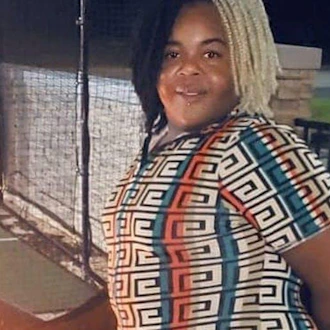
Thomas Hardin
York, South Carolina

Poe Black
Niland, California
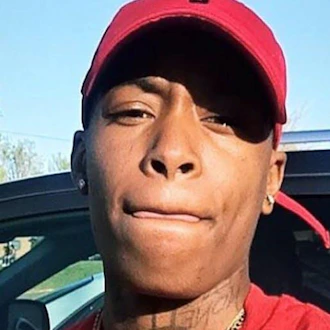
EJ Boykin
Lynchburg, Virginia

Aidelen Evans
Port Arthur, Texas

Taya Ashton
Prince George’s County, Maryland

Shai Vanderpump
Trenton, New Jersey
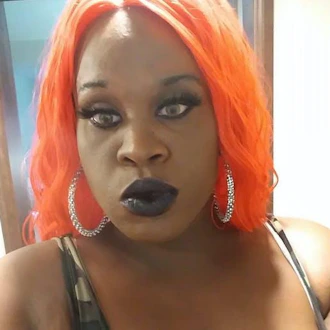
Tierramarie Lewis
Cleveland, Ohio

Miss CoCo
Dallas, Texas

Pooh Johnson
Shreveport, Louisiana

Disaya Monaee
Chicago, Illinois

Briana Hamilton
Chicago, Illinois

Kiér Laprí Kartier
Arlington, Texas

Mel Groves
Jackson, Mississippi

Royal Poetical Starz
Miami Gardens, Florida
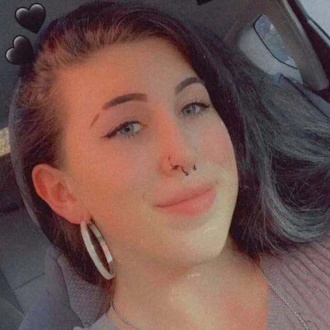
Zoella "Zoey" Rose Martinez
Maple Valley, Washington

Jo Acker
Boise, Idaho

Jessi Hart
Banks, Oregon

Rikkey Outumuro
Centralia, Washington
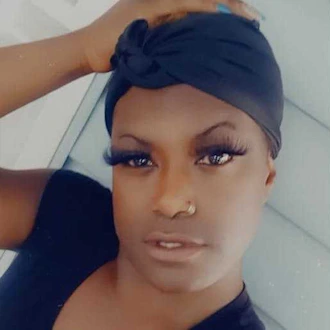
Marquiisha Lawrence
South Carolina

Jenny De Leon
Tampa, Florida

Angel Naira
Aliquippa, Pennsylvania
TYIANNA ALEXANDER
Chicago, Illinois
Tyianna Alexander, 28, was a Black transgender woman who was shot to death in Chicago on January 6.
On social media, friends of Tyianna posted that she had “good energy” and had “a beautiful light,” with one friend saying “I loved everything about her.” Said another friend, “this lady was nothing but life, encouragement, motivation and fun.”


SAMUEL EDMUND DAMIÁN VALENTIN
Trujillo Alto, Puerto Rico
Samuel Edmund Damián Valentín, a Latinx transgender man, was killed on January 9 in Trujillo Alto, Puerto Rico.
Samuel was looking forward to starting a new year. On January 1, he posted on his Facebook, “a new year to come, grateful for all the experiences who [taught] me how strong we really are, to life, to good and bad, and for all justice that is forth to come.” He also spoke out against violence in Puerto Rico, expressing his hope for a Puerto Rico without killings.
BIANCA "MUFFIN" BANKZ
Atlanta, Georgia
Bianca "Muffin" Bankz, a Black transgender woman, was shot to death in Atlanta, Georgia on January 17.
On Friday, January 29, Bianca’s friends and the Trans Housing Coalition (THC) held a vigil outside of her apartment to remember her. Said THC’s Founder and Co-Director Jesse Pratt López, “Muffin was just blossoming into herself.”


DOMINIQUE JACKSON
Jackson, Mississippi
Dominique Jackson was a Black transgender woman, was shot to death in Jackson, Miss. on January 25.
According to her Facebook, Dominique was the Mother of the Haus of Redd, and the Founder of The Ladi Redd Inc. Friends remembered her on social media, with one saying “my heart is heavy,” and another sharing “I’m at a loss for words.”
FIFTY BANDZ
Baton Rouge, Louisiana
Fifty Bandz, a 21-year-old Black transgender woman, was shot to death in Baton Rouge, Louisiana on January 28.
Friends of Fifty Bandz and advocates said her name as they released balloons to remember her life. On Facebook, one friend shared, “When are we as a community going to do something?!”


ALEXUS "KIMMY ICON" BRAXTON
Miami, Florida
Alexus Braxton, also known as Kimmy Icon Braxton, was a 45-year-old Black trans woman killed on February 4 in Miami.
Braxton was a hairstylist and active on social media, posting regularly. One of her most recent posts said “they can’t stop my shine.” Family and friends held a balloon release to honor Alexus’s life on February 8 and have been remembering her on social media, with one saying “I’m beyond devastated.”
CHYNA CARRILLO
New Wilmington, Pennsylvania
Chyna Carrillo, who also went by Chyna Cardenas, was a Latinx transgender woman who was killed in the morning hours of February 18, 2021, in New Wilmington, Pennsylvania.
Not much is known at the time about Chyna’s personal life. One of her social media posts suggested she would have celebrated her 25th birthday just weeks before her death. “Chyna was very young and did not deserve to have her life cut short,” said HRC Director of Community Engagement for the Transgender Justice Initiative Tori Cooper.


JEFFREY "JJ" BRIGHT AND JASMINE CANNADY
Ambridge, Pennsylvania
Siblings Jeffrey "JJ" Bright, a 16-year-old trans boy, and Jasmine Cannady, a 22-year-old non-binary person, both from Ambridge, Pennsylvania, were killed on February 22.
Jeffrey was a student at Ambridge High School, while Jasmine worked at FedEx, according to their Facebook page. Both siblings were active in PRISM, a non-profit organization for the LGBTQ+ youth of Beaver County, Pa. “JJ is a part of our PRISM family,” PRISM shared on their Facebook. “JJ was a beautiful person with the biggest and brightest smile.” PRISM describes Jasmine as “a sweet, shy and artistic soul,” and according to the Transfamily of NWPA, Jasmine “loved to dance. They cared deeply for their friends.” On February 23, PRISM held a candlelight vigil in memory of Jasmine and Jeffrey.
JENNA FRANKS
Jacksonville, North Carolina
Jenna Franks, a 34-year-old white transgender woman, was killed in Jacksonville, North Carolina in February.
Jenna was a part of the Onslow County LGBTQ+ Community Center family. She was remembered on Facebook by friends and family as “sweet” and “a rock star.” Dennis Biancuzzo, Executive Director for the Onslow County LGBTQ+ Community Center, described Jenna as “a beautiful soul” and “a breath of fresh air.”


DIAMOND KYREE SANDERS
Cincinnati, Ohio
Diamond Kyree Sanders, a 23-year-old Black transgender woman, was shot to death in Cincinnati, Ohio on March 3.
Diamond was described by a family member on social media as “beloved.” An obituary shared by her family describes many loving memories. “She valued her family and enjoyed spending time with them. As a child, she would say “I love my WHOLE family!,” the obituary states. In her adult life, Diamond was a traveler, known to be in New York City one week and New Orleans the following week, according to her obituary.
RAYANNA PARDO
Los Angeles, California
Rayanna Pardo, a 26-year-old Latinx transgender woman, was killed on March 17 in Los Angeles.
A former colleague of Rayanna’s from Starbucks shared that as co-workers, they had an “amazing time together.” According to The Advocate, the TransLatin@ Coalition and Rayanna’s friends and family held a candlelight vigil in her memory on March 20. “Rayanna was such a beautiful young person who just wanted to live her life and be herself,” said Trans Latin@ Coalition President Bamby Salcedo.


JAIDA PETERSON
Charlotte, North Carolina
Jaida Peterson, a 29-year-old Black transgender woman, was killed on April 4 in Charlotte, North Carolina.
Jaida’s family and friends have been remembering her on social media, with her sister sharing, “you are going to be truly missed and once again we love you always.” Local advocates in Charlotte held a vigil on April 9 to remember her.

DOMINIQUE LUCIOUS
Springfield, Missouri
Dominique Lucious, a 26-year-old Black transgender woman, was shot and killed on April 8 in Springfield, Missouri.
According to her Facebook account, Dominique was a fan of the TV show “Empire.” On social media, many of Dominique’s friends expressed their love for her and how much she will be missed. One friend shared “Many don’t get to live in their authentic truth. You were fierce, glam, and hunny gorgeous! I love you now, tomorrow and forever.”



REMY FENNELL
Charlotte, North Carolina
Remy Fennell, a Black transgender woman in her 20s, was shot to death on April 15 in Charlotte, North Carolina.
Remy's aunt said, “She was a vibrant young transgender woman who was just trying to make it & was doing it. She started her own business, graduated from cosmetology school…She has left her mark on the hair industry.”

TIARA BANKS
Chicago, Illinois
Tiara Banks, a 24-year-old Black transgender woman, was killed in Chicago, Illinois on April 21, 2021.
According to a news report, Tiara was sitting alone in her Ford Fusion when the shooter approached the vehicle and shot Tiara multiple times. Tiara was pronounced dead at the scene. “At just 24 years old, Tiara had her whole entire life ahead of her and, instead, we are remembering her because of the ongoing fatal violence against transgender people," said HRC Director of Community Engagement for the Transgender Justice Initiative Tori Cooper.



NATALIA SMUT
Milpitas, California
Natalia Smut, a 24-year-old Black and Puerto Rican transgender woman, was killed on April 23 in Milpitas, California.
Natalia was a celebrated drag artist in the San Jose LGBTQ+ community with local community members describing her as a “motivating and creative spirit" with "captivating performances" and a "love for advocacy within the community.” Friends and community members organized a vigil for Natalia, with more than 100 people attending.

IRIS SANTOS
Houston, Texas
Iris Santos, a 22-year-old Latinx transgender woman, was killed in Houston, Texas on April 23, 2021.
Iris was sitting at a picnic table enjoying a meal when an unidentified suspect approached and shot her. Iris was taken to a local hospital, where she was later pronounced dead. “Iris was so young with so many things to look forward to,” said Tori Cooper, Human Rights campaign director of community engagement for the Transgender Justice Initiative. “Iris was simply minding her own business, sitting and eating when her life was abruptly cut short.”



TIFFANY THOMAS
Dallas, Texas
Tiffany Thomas, a 38-year-old Black transgender woman, was killed on April 24 in Dallas, Texas.
Tiffany is being remembered as someone who had a “big heart, who was “funny” and “stayed laughing,” and who was stylish.

KERI WASHINGTON
Clearwater, Florida
Keri Washington, a 49-year-old Black transgender woman, was killed on May 1 in Clearwater, Florida.
“Our community is yet again in mourning as a result of senseless acts of violence against transgender and gender non-conforming people,” said Tori Cooper, HRC Director of Community Engagement for the Transgender Justice Initiative. “Keri was at least the fourth transgender woman killed in less than 10 days, each of them Black or Brown. We urge everyone to end the stigma against transgender people, and to destroy the roots of transphobia and racism that fuel this violence.”
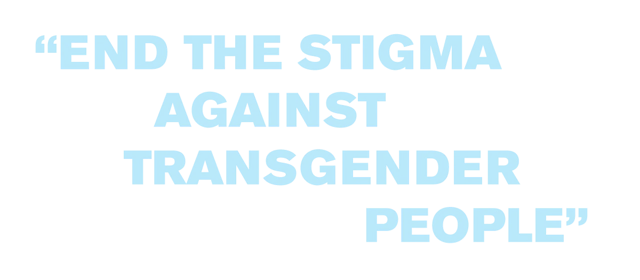


JAHAIRA DEALTO
Boston, Massachusetts
Jahaira DeAlto, a 42-year-old transgender woman, was killed on May 2 in Boston, Mass.
A well-known and beloved transgender advocate, advocate for survivors of domestic and sexual violence, and member of the ballroom community, Jahaira was a member of the House of Balenciaga and was a founder of Berkshire Transgender Day of Remembrance and Berkshire Pride Festival. She shared on Twitter, “I am the mother who raised the children whose rainbow sparkled too brightly and blinded their birth moms… I know what gratitude in the eyes of a young person who finally feels seen looks like. And for me, that’s enough.”

WHISPERING WIND BEAR SPIRIT
York, Pennsylvania
Whispering Wind Bear Spirit, a 41-year-old Indigenous non-binary person, was shot in York, Pennsylvania on May 3 and died early on May 4.
They often shared photos of meaningful quotes on their Facebook. Friends and family are remembering them on Facebook, with one sharing “you are missed” and another remembering Whispering Wind as “a beautiful and kind soul.”



SOPHIE VÁSQUEZ
Georgia
Sophia Vásquez, a 36-year-old Latinx transgender woman, was shot and killed in Georgia on May 4.
Sophie was a part of the EsTr (El / La) Community, or Community Estrella, a community that works to support transgender people in the Atlanta area. She is remembered as “the kindest person on the planet” and as someone who was “truly beautiful inside and out.”

DANIKA "DANNY" HENSON
Baltimore, Maryland
Danika "Danny" Henson, who also went by Pryynce Daniel and Niia Da Don on Facebook, was a 31-year-old Black transgender woman shot and killed in Baltimore, Maryland, on May 4.
Henson also may have identified as genderfluid. According to family, Henson had just begun transitioning. One family member shared that Henson “always had a BIG heart… there was love behind everything!” On May 6, friends, family and the Baltimore Safe Haven hosted a candlelight and balloon release vigil to remember Henson.



SERENITY HOLLIS
Albany, Georgia
Serenity Hollis, a 24-year-old Black transgender woman, was shot and killed in Albany, Georgia, on May 8.
Her mother said that “the person that’s responsible has no idea what they took from us...I absolutely want to see that justice is served.”

OLIVER "OLLIE" TAYLOR
Gervais, Oregon
Oliver "Ollie" Taylor, a 17-year-old white trans teen, died on May 19 after being kidnapped and shot on May 12 in Gervais, Oregon.
He was a student at Gervais High School, where he was involved in the Gervais Future Farmers of America organization. The high school held a vigil to remember Oliver on May 20. Oliver is remembered as “an amazing child with a quirky sense of humor, who impacted so many people.”



THOMAS HARDIN
York, South Carolina
Thomas Hardin, a 35-year-old Black transgender woman, was killed on May 2 in York, South Carolina.
According to local news, friends have shared that Hardin “identified as a woman,” continued to use the name Thomas and used both he and she pronouns. Friends remembered Hardin as someone who “always kept you laughing.” A funeral service was held on May 12. Sadly, not much is currently known about Hardin’s life.

POE BLACK
Niland, California
Poe Black, who also went by Oliver Jackson and Legion, was a 21-year-old two-spirit transgender man of Wyandot Native-American descent who was killed in Niland, California in an area called Slab City, in early May.
His body was found on May 11. Poe was originally from Nashville, Tennessee and often posted about disability rights and Black Lives Matter on social media. He was also an artist, with several online stores where he displayed and sold his art.



EJ BOYKIN
Lynchburg, Virginia
EJ Boykin, who also went by Novaa Watson, was a 23-year-old Black transgender man who was killed in Lynchburg, Virginia on June 14.
He had just recently celebrated his 23rd birthday on June 10 and was studying at Morgan State University. It appears EJ was also the parent of a young child. One of Boykin’s friends told HRC that “He was loved and like[d] by everyone. He was one of those people that was just good vibes and energy.”

AIDELEN EVANS
Port Arthur, Texas
Aidelen Evans, a 24-year-old Black transgender woman, was found dead in March in Port Arthur, Texas.
Initially investigated as suspicious, as of July, her death is being investigated as a homicide. Aidelen was originally from Beaumont, Texas and had recently spent time in Port Arthur, Beaumont and Houston. “Nobody — no parent should have to go through this,” said Lois Balka, Aidelen’s grandmother, in March. “You will always be in my heart.” Sadly, not much is currently known about Aidelen’s life.



TAYA ASHTON
Prince George's County, Maryland
Taya Ashton, a 20-year-old Black trans woman, was killed in Suitland, Prince George’s County, Maryland on July 17.
According to social media, friends and family held a vigil and balloon release to remember Taya. “Taya was just at the beginning of her life -- a life that she deserved to live to its fullest,” said Lindsey Clark, HRC Associate Director of the Transgender Justice Initiative. “Black transgender women continue to be killed in this country, and this violence is unacceptable.”

SHAI VANDERPUMP
Trenton, New Jersey
Shai Vanderpump, a 23-year-old Black trans woman, was killed in Trenton, New Jersey, on July 30.
According to Garden State Equality, Shai was “a fierce LGBTQ advocate.” A GoFundMe remembered Shai as being known for her “style [and] love of family,” as someone who had a “heart of gold” and who “loved to dress, smile and see everyone happy and smiling.”



TIERRAMARIE LEWIS
Cleveland, Ohio
Tierramarie Lewis, a 36-year-old Black transgender woman, was killed in Cleveland, Ohio on June 12.
Due to misgendering and misnaming from local officials and a lack of media coverage, her death was not reported until recently. According to reporting from The Buckeye Flame, Tierramarie moved to Cleveland last year for a fresh start. One friend remembered Tierramarie as “a spirited girl… one day she would have purple hair, one day pink hair and always an outfit to go with those colors.”

MISS COCO
Dallas, Texas
Miss CoCo, a 44-year-old Black transgender woman, was killed in Dallas, Texas on August 7, 2021.
According to Nu Trans Movement, she was “a well-known small girl with a big, bubbly personality. CoCo was a happy person [and] proud to be living her truth!” Sadly, not much beyond this is publicly known about Miss CoCo’s life at this time.



POOH JOHNSON
Shreveport, Indiana
Pooh Johnson, a 25-year-old Black trans woman, was killed in Shreveport, Louisiana on August 23, 2021.
Johnson was an accomplished makeup artist under the name Titanizer. Sadly, not much beyond this is publicly known about Johnson’s life at this time.

DISAYA MONAEE
Chicago, Illinois
Disaya Monaee, a 32-year-old Black transgender woman, was fatally shot in Chicago, Illinois on September 6.
“The epidemic of violence plaguing the transgender community, particularly Black transgender women, is appalling,” said Tori Cooper, HRC Director of Community Engagement for the Transgender Justice Initiative. “It is often the result of a toxic combination of transphobia, racism and misogyny.”



BRIANA HAMILTON
Chicago, Illinois
Briana Hamilton, was a 25-year-old Black transgender woman who was fatally shot in Chicago, Illinois.
On social media, Hamilton’s mother described her as Brianna as an “amazing person who touched so many people hearts with her presence and her memory will forever live on.”


KIÉR LAPRÍ KARTIER
Arlington, Texas
Kiér Laprí Kartier, a 21-year-old Black transgender woman, was fatally shot in Arlington, Texas on Sept. 30, 2021.
Kartier was from Dallas, Texas and graduated from Skyline High School. Her friends remembered her on social media as a “very strong, independent person” who “always had my back through thick and thin.”

MEL GROVES
Jackson, Mississippi
Mel Groves, a 25-year-old Black transgender man, was fatally shot on October 11, 2021 in Jackson, Mississippi.
Groves was a plant soil scientist at Alcorn State University who loved agriculture and animals. Groves was also an active member of The Knights & Orchids Society, “a southern centered grassroots startup founded and led by black, queer, transgender, and gender non-conforming people supporting gender justice and LGBTQ visibility.”



ROYAL POETICAL STARZ
Miami Gardens, Florida
Royal Poetical Starz, a 26-year-old Black trans woman, was fatally shot in Miami Gardens, Florida on October 2. Starz was a graduate of Florida Career College Vocational School. On social media, she was remembered as “the life of the party.”

ZOELLA "ZOEY" ROSE MARTINEZ
Maple Valley, Washington
Zoella "Zoey" Rose Martinez, a 20-year-old Latina trans woman, was fatally shot in Maple Valley, Washington back on Aug. 31, 2021.
Her body was later found in Seattle. Initial reports did not recognize Zoey as transgender until her family confirmed her identity this month. In a statement to HRC, Martinez’s family shared that Zoey “Zoey mastered makeup that accentuated her loving and caring personality...Zoey had a beautiful spirit, she always had a smile and had only kind words to say about others. Zoey was a born leader and her peers acknowledged her as such.”



JO ACKER
Boise, Idaho
Jo Acker, a white 26-year-old transgender woman, was killed in Boise, Idaho on October 26, 2021.
Acker was one of the victims of a tragic shooting at Boise Towne Square mall while working security. Her family said Acker ran toward the suspect to stop him, likely saving many lives. Acker’s family told the media that Acker was “a hero” and “the type of person that always wanted to help people.” They added that she “will be greatly missed.”

JESSI HART
Banks, Oregon
Jessi Hart, a white 42-year-old transgender woman, was killed in Banks, Oregon. Her body was found on Oct. 17, 2021.
Prior to her death, Hart and her teenaged son, Caleb, had been struggling with housing insecurity, staying in hotel rooms through subsidized and nonprofit assistance. Later, they both were staying in her black Saab. Unfortunately, not much is known about Hart’s personal life. “As transgender people, we often face so many challenges and uncertainties, including housing and employment security,” said Tori Cooper, HRC Director of Community Engagement for the Transgender Justice Initiative. “Sadly, these situations can lead to greatly unfortunate outcomes. My heart and that of the community goes out to her son, Caleb.”



RIKKEY OUTUMURO
Cantralia, Washington
Rikkey Outumuro, a.k.a. Tru Starlet, was a 39-year-old Latina transgender woman who was fatally shot in Centralia, WA. on the night of October 30 or the morning of October 31, 2021.
Outumuro was a popular and well-loved member of the Washington LGBTQ+ community. She performed under the drag name Tru Starlet and was a former Miss Gay Lewis County. Friends remembered her on social media, with one writing that she was “an incredible advocate for the queer and trans community for nearly 20 years.”

MARQUIISHA LAWRENCE
South Carolina
Marquiisha Lawrence, a 28-year-old Black trans woman, was fatally shot in South Carolina on Nov. 4, 2021.
Lawrence was “very humble,” as one friend remembers her, and had a “heart of gold.” Lawrence’s friend said that her favorite thing to do was to cook because she felt it “filled the belly and fed the heart.”



JENNY DE LEON
Tampa, Florida
Jenny De Leon, a 25-year-old Latina transgender woman, was found dead in Tampa Florida on November 2, 2021.
De Leon attended PFLAG Tampa meetings and sought their help when she began transitioning. The organization wrote that “Jenny was an enigmatic, bright soul with enough energy to fill any room.”

ANGEL NAIRA
Aliquippa, Pennsylvania
Angel Naira, a 36-year-old Black transgender woman, was found fatally shot at her home in Aliquippa, Pennsylvania on Nov. 11, 2021.
Naira was a graduate of Aliquippa High School and Beaver Falls Beauty Academy and worked full time in home health care. Naira’s brother wrote that she was “a great person and loved everyone. She had a big heart and would do anything for her family and friends.”

ADDITIONAL CONCERNING DEATHS OF TRANSGENDER AND GENDER NON-CONFORMING INDIVIDUALS

FENDI MON'EZAH ARMSTRONG
Lithonia, Georgia
Fendi Mon'ezah Armstrong, also known as “Peaches,” was a 39-year-old Black transgender woman who was found dead of a gunshot wound at a motel near Lithonia, Georgia, on November 12, 2020.
She was from Springfield, Massachusetts and lived in Charlotte, North Carolina before moving to Decatur, Georgia shortly before her death. Fendi was an aspiring motivational health and beauty advisor.



KIMBERELY PATRICIA COPE
Athens, Georgia
Kimberey Patricia Cope, a 40-year-old Black transgender woman, was found dead in a parking lot in Athens, Georgia, on December 27, 2020.
Kimberely’s friends told police that someone in a white SUV pulled up and spoke with her early in the morning of Dec. 27. Whether she got into the vehicle is unknown, but after the conversation took place, her friends did not see her again. Police say there were no signs of foul play, but they are still investigating and the autopsy report has yet to be released. Kimberely was described in her obituary as “a gifted make-up artist, a self-trained hair stylist, [who] had an eye for presentation and an extraordinary sense of style… Kim was a pet lover and animal advocate. She dreamed of the chance to work in a veterinary office or animal shelter.”

BONAIRE "BONNI" BLACK
Atlanta, Georgia
Bonaire "Bonni" Black, a 19-year-old Black transgender teen, was found dead on December 31, 2020 in Atlanta.
Although police believe her death was due to natural causes, friends and local advocates have disputed that account. Autopsy and toxicology reports have not been released, and neither has an official cause of death. On January 21, friends and advocates gathered to remember Bonni, describing her as “an artist, songwriter and rapper.” One advocate said of Bonni, “She loved doing her makeup and going out into the world making sure she looked her best.”



NATASHA KEIANNA
Detroit, Michigan
Natasha Keianna, a 37-year-old Black transgender woman, was reported missing on January 6, 2021. She was later found dead in her car on January 12 in Detroit, Michigan. Although the Detroit Police Department did not find signs of trauma or foul play, Natasha’s mother believes that she was targeted because she was transgender. An autopsy was requested, but no official cause of death has been announced.
A friend of Natasha’s remembered her as a “sweet girl,” saying, “You knew her by the way that she dressed. She always had a nice heel on. She liked tall heels. But she didn’t try to flaunt it.”


KIM WIRTZ
Baltimore, Maryland
Kim Wirtz, a 43-year-old Asian transgender woman, was found unconscious on February 25, 2021 in a single jail cell at the Baltimore Central Booking and Intake Center. Kim was housed with men, a situation that transgender women in the criminal justice system often face. Maryland’s Department of Safety and Correctional Services does not believe foul play was involved, but Kim’s family has not received information about the circumstances surrounding her death, and a cause of death has not yet been released.
Baltimore Safe Haven, a local LGBTQ+ organization, has started a petition calling for justice for Kim, and also hosted a vigil on March 5. Kim’s niece remembered her as “resilient,” saying, “She was a very strong person. She tried to find her place in this world.”
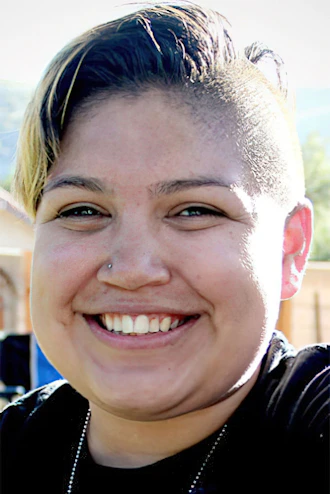
KRYS BRANDON RUIZ
Lompoc, California
Krys Brandon Ruiz, a 26-year-old Latinx transgender man, was shot and killed by Lompoc police on March 28, 2021 in Lompoc, California. The investigation into his death by the Barbara County Sheriff’s Office is ongoing. Krys’ family’s attorney has also asked the California state attorney general to investigate his death, calling on a new law that requires the state attorney general to investigate incidents of unarmed people shot by police. The Barbara County Sheriff’s Office is alleging that Krys had a knife at the time was shot.
His obituary states that Krys loved music and that “he will be remembered through the many musical recordings he left behind.” The obituary goes on to say, “Krys was blessed in life with good, solid friendships over the years… Krys’ smile lit up any room; it was very captivating. He was known for his ever-changing hair color… Krys loved having a big family.”



BRIANA MARITZA MARQUEZ
Houston, Texas
Briana Maritza Marquez, a 26-year-old Latinx transgender woman, was found/pronounced dead on April 5, 2021. Brianna was from Houston. She had been missing for some time.

KOKO NIA LABEIJA
Chicago, Illinois
Koko Nia Labeija was found dead on June 6, 2020 in Chicago, but she was not identified until early April 2021. On her Twitter profile, Koko, a 19-year-old Black transgender teen, described herself as loving the Kardashians/Jenners, as well as fashion and makeup, while her Facebook profile describes her as “a makeup artist in the making.” Her nickname was “The Beautiful.” According to PGH Lesbian, Koko attended Dr. Pedro Albizu Campos High School and worked at Oberweis Dairy. The school held a memorial event on April 9, and described Koko as a “vibrant soul.”



HAVEN A. BAILEY
Villa Park, Illinois
Haven A. Bailey, a 25-year-old white transgender man, was shot and killed by Villa Park police on May 24, 2021 in Villa Park, Illinois. The investigation into his death is ongoing. According to local news reports, early on May 24, police shot an individual who appeared to be holding a gun and who was approaching police. According to police, a black pellet gun made to look like a real gun was recovered from the scene.
Haven’s family shared that he had struggled with mental illness, addiction and suicidality. According to his obituary, “Haven was a dedicated, caring, and open friend, whose advice [was] a treasured comfort to many. Haven could light up any room, bring a smile to your face and make you laugh. As a friend, you would always know Haven loved you for who you are, without any judgment or criticism.”

DEEDEE THOMAS
New York City, New York
DeeDee Thomas, a 42-year-old Black transgender woman, was found dead in New York City on June 6, 2021. The investigation into her death is ongoing. According to reports, although foul play is suspected, an autopsy is pending and her death has not yet been ruled a homicide. Some members of her family believe DeeDee may have been experiencing domestic violence.
DeeDee’s family described her as “happy,” “beautiful” and a “sweet soul.” They also shared that she enjoyed telling stories, dancing, singing and doing hair and makeup. On June 25, they held a memorial service to remember her.

UPDATES ON 2020 DEATHS
After HRC’s 2020 report was published, seven more transgender or gender non-conforming people were killed. The total number of recorded incidents of fatal violence against transgender and gender non-conforming people between 2013-2020 increased from 202 to 209. Below are memorials and updates on the additional individuals who lost their lives in 2020 after our 2020 report was released.

Skylar Heath
Miami, Florida

Asia Jynae Foster
Houston, Texas
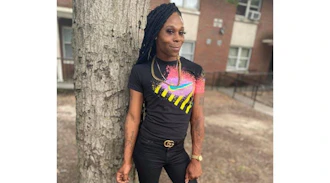
Chae'Meshia Simms
Richmond, Virginia

Kimberly Fial
San Jose, California

Jaheim Pugh Jaheim Barbie
Prichard, Alabama

Courtney "Eshay" Key
Chicago, Illinois

Alexandria Winchester
Bronx, New York


SKYLAR HEATH
Miami, Florida
Skylar Heath, a 20-year-old Black transgender woman, was killed on November 4 in Miami, Florida.
Skylar was described as a “kind and gentle soul” who “had such a love for family and close friends.” Skylar had a “warm personality” and a “friendly spirit,” and brought people who knew her “so much joy.”

ASIA JYNAE FOSTER
Houston, Texas
Asia Jynae Foster, a 22-year-old Black transgender woman, was killed on Nov. 20 in Houston, Texas.
Her death occurred on Trans Day of Remembrance, a day created to honor those in our community taken by violence. Asia was remembered during a candlelight vigil where family and friends described her as “a beacon of light in their community.”



CHAE'MESHIA SIMMS
Richmond, Virginia
Chae'meshia Simms, a Black transgender woman in her 30s, was killed on Nov. 23 in Richmond, Virginia.
Simms, who sometimes used the nickname “ChaeChae,” was close with her family and friends. They remembered her on social media as “good,” “kind” and “caring.”

KIMBERLY FIAL
San Jose, California
Kimberly Fial, a 55-year-old white transgender woman, was killed on Nov. 22 in San Jose, California, at a homeless shelter where she volunteered. She is remembered by friends and loved ones as "a kind & loving person" and someone with "a twinkle in her eye."



JAHEIM PUGH JAHEIM BARBIE
Prichard, Alabama
Jaheim Pugh Jaheim Barbie, who might have also used the name Bella, was a 19-year-old Black gender non-conforming person who was killed on December 13 in Prichard, Alabama.
On December 18, Jaheim’s family held a celebration of life, including a motorcade and gathering. On social media, friends and family remembered Jaheim as “the life of the party,” “such a bright light” and “so loving.”

COURTNEY "ESHAY" KEY
Chicago, Illinois
Courtney "Eshay" Key, a 25-year-old Black transgender woman, was killed in Chicago, Illinois, on December 25. Loved ones described her as “a vibrant and beautiful woman who had a big heart and big dreams.”



ALEXANDRIA WINCHESTER
Bronx, New York
Alexandria Winchester, a 24-year-old Latinx trans woman, was killed on Dec. 26 in the Bronx, New York. Sadly, not many details are known about Alexandria’s life.
She was a client at the Ali Forney Center, who is working with community leaders to host a vigil in memory of Winchester. “Alexandria mattered to her community and to the world. The loss of another transgender person in 2020 is devastating,” said HRC Associate Director of the Transgender Justice Initiative Lindsey Clark.
THE EPIDEMIC BY THE NUMBERS
Since January 2013, HRC and other advocates have recorded at least 256 transgender and gender non-conforming individuals who were victims of fatal violence in the U.S. In 2021, we recorded 47 fatalities at the time of publication, on the way to being the highest number we’ve tracked thus far in a single year.
It is important to remember that this analysis is not exhaustive nor definitive, but simply provides a snapshot into the landscape of fatal violence against transgender and gender non-conforming people. That being said, this data provides us with one of many useful tools in fighting for justice for transgender and gender non-conforming people across the U.S. and combatting violence against them.
Throughout this section, we say “at least” for most statistics. Fatal violence against transgender and gender nonconforming people is often reported inaccurately and insufficiently. Victims are consistently misgendered, and crimes against them are consistently underreported.
BLACK TRANSGENDER WOMEN CRITICALLY IMPACTED
Fatal violence against transgender and gender non-conforming people disproportionately affects transgender women, people of color, young people and people in the South. At least 198 victims of fatal violence against transgender and gender non-conforming people since 2013 were transgender women of color (77%). Black transgender women were critically impacted, representing two-thirds (66%) of all known victims since 2013.
MOST VICTIMS ARE WOMEN
In the past eight years of data, we have found that nearly nine in ten victims were transgender women. Since 2013, at least 218 transgender women (85% of victims) were victims of fatal violence, as well as:
- Seventeen transgender men
- Sixteen non-binary, gender non-conforming and
- One Two-Spirit person
HRC was unable to confirm the gender of one victim with available information.
In 2021, at least 39 victims were transgender women, of which 28 were Black transgender women. Additionally, at least 6 were transgender men, 2 were non-binary or gender non-conforming.
MOST VICTIMS ARE PEOPLE OF COLOR
Fatal violence against transgender and gender non-conforming people disproportionately affects people of color. Since 2013, at least 84% of victims of violence against transgender and gender non-conforming people were people of color. In 2021, at least 28 victims were Black and 6 were Latinx, and 1 Indigenous victim -- of which 30 in total were Black or Latinx women.
VICTIMS ARE OFTEN YOUNGER AND SOMETIMES EVEN MINORS
Since 2013, victims of known fatal violence were anywhere from age 16 to 66, with more than three-quarters (79%) of victims age 35 or under. Nine of them were minors.
- More than three-quarters (79%) of victims were age 35 or under
- One in ten victims were under the age of 21
- 9 victims were minors
Victims tracked in 2021 so far have been between the ages of 16 and 49. At least twenty-nine of the victims were 35 years of age and under. Two victims were minors. The age is unknown for three victims.
FATAL VIOLENCE IMPACTS CITIES AND STATES NATIONWIDE
Since 2013, HRC and advocates have tracked more than 256 cases of fatal violence against transgender and gender non-conforming people nationwide, spanning across
Fatalities in 2021 so far have been reported among 19 states and Puerto Rico across 33 cities and towns. Most deaths in 2021 have been in Texas and Pennsylvania (five total), followed by four in Florida and Illinois. Additionally, there have been three deaths each in California, Georgia and North Carolina. There were two deaths each in Louisiana, Maryland, Mississippi,Ohio, Oregon, South Carolina and Washington; and one death each in Idaho, Massachusetts, Missouri, New Jersey, Puerto Rico and Virginia
GUNS INVOLVED IN MOST INCIDENTS
Gun violence is a major contributing factor to the number of fatalities against transgender and gender non-conforming people. Since 2013, more than two-thirds of our recorded fatalities involved a firearm. In 2021, at least 31 of 41 fatalities so far have involved a firearm/gun violence. The details for 7 cases are still unknown.
INTERPERSONAL VIOLENCE IS A SIGNIFICANT CAUSE OF DEATH
Interpersonal violence accounts for a significant number of fatalities against transgender and gender non-conforming people. In 2021, approximately seven in ten transgender and gender non-conforming people killed as a result of fatal violence were killed by an acquaintance, friend, family member or intimate partner. Unfortunately, the relationship of the victim to the killer is still unknown for a plurality (43%) of all known cases.
MISGENDERING OF VICTIMS IS PREVALENT
Far too many transgender and gender non-conforming victims are misgendered after death. Since 2013, roughly 8 in 10 (80%) of fatalities with available data were initially misgendered by the media and/or police or criminal justice system. We say “roughly” because initial reporting data were not identified for 15% of cases. While this misgendering is extremely disrespectful, it also impedes investigations and data collection. At least 24 of the 47 fatalities in 2021 were initially misgendered by the media and/or police.
FEW ANTI-TRANSGENDER MURDERS REFLECTED IN ANNUAL FBI STATISTICS, THOUGHT MORE CASES WERE REPORTED IN 2020
Like HRC, the FBI has tracked gender identity motivated hate crime data since 2013, with 2020 being the most recent year of data available. For most of the FBI’s history of collecting gender identity data, transgender and gender non-conforming people have been vastly undercounted. From 2013 to 2019, HRC has tracked at least 9 confirmed cases of fatal violence that were deemed hate crimes by local authorities, however FBI data from that same period reflected only 2 anti-transgender murders/negligent homicides. While not every incident of fatal violence against transgender and gender non-conforming people tracked by HRC is ruled a bias-motivated homicide, the difference between the FBI statistics and HRC’s data is alarming and likely results in part from non-reporting, underreporting, or inaccurate reporting by state and municipal law enforcement agencies to the FBI. In 2020, a total of 8 anti-transgender murders were reported by the FBI, and zero were reported for anti-gender non-conforming murders. The uptick may be attributed to both the overall increase in hate crimes in the U.S. during 2020 compared to previous years and possibly increased improvements in reporting by some law enforcement agencies.
IMPORTANT EXISTING AND NEEDED LEGAL PROTECTIONS
Although there are a few existing legal protections for transgender and gender nonconforming people, this violence cannot be stemmed until the rights of transgender and gender non-conforming people are fully realized and our systems are reformed to address the epidemic and its root causes.
EXISTING LEGAL PROTECTIONS
Violence Against Women Act
The Violence Against Women Act is also pivotal to protecting transgender and gender non-conforming people. This legislation, signed into law 26 years ago, has helped reduce domestic violence and sexual assault and has provided victims and survivors critical lifeline services. Since 2013, the law expressly prohibits discrimination on the basis of sexual orientation and gender identity, making it easier for LGBTQ people to receive services.
Matthew Shepard & James Byrd Jr. Hate Crimes Prevention Act
The historic Matthew Shepard and James Byrd, Jr. Hate Crimes Prevention Act was signed into law just over 11 years ago. This landmark legislation added actual or perceived gender identity to federal hate crime protections for the first time, along with gender, sexual orientation and disability. It also required the FBI to track statistics based on gender identity and gender and enabled the U.S. Department of Justice to assist state and local jurisdictions with investigating and prosecuting violent bias-motivated crimes.
Bostock Decision & State Laws
In June of this year, the Supreme Court of the United States issued a decision in Bostock v. Clayton County, Georgia that makes it clear that discrimination on the basis of sexual orientation and gender identity is prohibited under the federal employment non-discrimination law known as Title VII. This is a landmark decision that has implications that will eventually reach federal civil rights laws forbidding discrimination in education, health care, housing and several other areas. Importantly, Bostock does not reach some vital areas like public spaces and services, nor does it apply to most federally-funded programs since sex-based federal protections do not currently exist in these areas. It is imperative that officials continue to advance pro-equality legislation at the state level, including in employment, to end the patchwork of non-discrimination laws and to explicitly protect LGBTQ people in every area of life.
Name and Gender Marker Updates on Identification Documents
Transgender and non-binary people who are unable to obtain identity documents that correctly reflect their name and gender identity frequently experience violence and discrimination. Inaccurate identity documents can also out transgender individuals at their places of work, while searching for places to live or in public spaces, potentially leading to harassment and discrimination. Fortunately, numerous states have laws or policies that facilitate name and gender marker updates on both driver’s licenses and birth certificates, including Alaska, California, Colorado, Connecticut, Delaware, Hawaii, Illinois, Kansas, Maryland, Massachusetts, Minnesota, Montana, Nevada, New Jersey, New Mexico, New York, Oregon, Pennsylvania, Rhode Island, Virginia, Washington, and the District of Columbia. Additionally, a growing number of states also allow for non-binary gender marker designations on driver’s licenses and/or birth certificates.
NEEDED LEGAL PROTECTIONS
Equality Act & State Nondiscrimination Laws
Despite significant steps forward, LGBTQ Americans lack basic explicit non-discrimination protections in states across the country. The patchwork nature of current laws leaves millions of people subject to uncertainty and potential discrimination that impacts their safety, their families and their day-to-day lives. The Equality Act would provide consistent and explicit non-discrimination protections for LGBTQ people across key areas of life, including employment, housing, credit, education, public spaces and services, federally funded programs and jury service. The Equality Act passed in the U.S. House of Representatives in May 2019. In order to become law, it must pass both chambers of Congress and be signed into law by the president.
LGBTQ Panic Defense
In the vast majority of states, there are no laws expressly banning perpetrators of violent crimes from asserting the victim’s sexual orientation or gender identity as a so-called “panic defense.” This “panic defense” allows a criminal defendant to argue in court that their discovery of the victim’s sexual orientation or gender identity caused the defendant’s violent reaction, potentially leading to a reduced charge or sentence. When used in a case of violence against a transgender or gender non-conforming person, this is often colloquially called a “trans panic defense.” Thankfully, in recent years a number of states have enacted bans, including California, Illinois, Rhode Island, Nevada, Connecticut, Hawaii, Maine, New Jersey, New York and Washington. The passage of such legislation will help to end the legitimization of violence against transgender and gender non-conforming people and ensure that victims obtain equal justice.
Jabara-Heyer NO HATE Act
Although we know that hate crimes continue to be a pervasive problem—particularly bias-motivated crimes based on gender identity—we are far from understanding its full extent. Because reporting hate crimes to the FBI is purely voluntary under federal law, the actual number of hate crimes across the country is much larger than FBI statistics indicate. Additionally, a number of other barriers often contribute to the underreporting of hate crimes, including distrust between targeted communities and law enforcement and uncertainty about law enforcement responses. Earlier this year, Congress passed the Jabara-Heyer NO HATE Act that will promote higher quality federal hate crimes data collection, incentivize state hotlines that assist victims who might otherwise be reluctant to report hate crimes, and encourage local policies on identifying, investigating and reporting hate crimes.
Addressing the Policing Crisis
Congress should adopt legislative reforms that address over-policing and police brutality, misconduct and harassment affecting Black people throughout the nation. These reforms should minimally include implementing a strong federal use of force standard; banning chokeholds and similar excessive force maneuvers; prohibiting racial profiling and requiring robust data collection on police-community encounters; banning federal programs that militarize law enforcement; eliminating no-knock warrants; amending existing federal laws to permit prosecutors to successfully hold law enforcement accountable for the deprivation of civil rights and civil liberties; developing a national public database of officers who engage in misconduct; and ending qualified immunity which prevents police from being held legally accountable when they break the law. Congress should swiftly pass the Justice in Policing Act of 2020 which reflects many of these core priorities.
Decriminalization of Sex Work
The criminalization of consensual sex work poses a serious threat to public health and increases violence in LGBTQ communities. Laws criminalizing sex work disproportionately punish the poor, Black and Brown women, transgender women, and those living at the intersection of multiple marginalized identities. States and the federal government should repeal laws that make consensual sex work illegal and should instead focus on providing critical services and protections for those who engage in transactional sex work as a means of survival.
Data Collection
Because gender identity is not included in most government data collection efforts, transgender and gender non-conforming individuals remain largely invisible to the local, state and federal officials charged with ensuring their health, safety and wellbeing. Currently, no state or the federal government has a comprehensive law that requires all government data collection efforts to include gender identity data alongside other demographic data. Congress should swiftly pass the federal LGBTQ Data Inclusion Act to help ensure that transgender and gender non-conforming people are counted when vital funding, policy and programmatic decisions are made.
Name and Gender Marker Updates on Identification Documents
While a number of states have modernized their laws to remove unnecessary barriers to correcting an individual’s name and gender marker on identity documents, many have not and some are actively seeking to prohibit transgender and non-binary people from obtaining identity documents that accurately reflect who they are. These restrictive laws place transgender and gender non-conforming people at increased risk of discrimination, harassment and violence. States should ensure that the process for updating names and gender markers on both driver’s licenses and birth certificates is free of unnecessary and restrictive requirements. Moreover, state-issued identification documents and federal documents like passports should include a nonbinary gender marker designation.
WHAT CAN WE DO?
ELIMINATE STIGMA AGAINST TRANSGENDER AND GENDER NON-CONFORMING PEOPLE.
Stigma against transgender and gender non-conforming people can take many forms, including lack of acceptance by friends and family, a hostile political climate and negative stereotypes or lack of representation in pop culture and the media. All of these factors lead to their dehumanization and increase their risk of experiencing violence. Reject transphobic language and have conversations with those around you who may need to learn more.
USE THE CORRECT NAMES AND PRONOUNS FOR TRANSGENDER AND GENDER NON-CONFORMING PEOPLE, IN LIFE AND DEATH.
Using a transgender or gender non-conforming person’s chosen name and pronouns is a sign of respect and inclusion. It signals that their identity is valid, even after death. When police and media reports use the correct names and pronouns of the deceased, it also helps with recording important demographic data and shedding light on the issue of violence against transgender and gender non-conforming people.
SUPPORT LAWS AND POLICIES THAT PROHIBIT DISCRIMINATION BASED ON GENDER IDENTITY.
Too often, transgender and gender non-conforming people lack explicit protections from discrimination. By including
gender identity in non-discrimination policies, we can ensure transgender and gender non-conforming people feel safe in their jobs, in public accommodations and in their daily lives.
UPLIFT TRANSGENDER AND GENDER NON-CONFORMING VOICES.
Increased representation of transgender and gender non-conforming people allows them to share their stories authentically to wider audiences. This increases tolerance in society as more and more people can recognize transgender and gender non-conforming people as important parts of the communities.
BUILD INCLUSIVE COMMUNITIES IN EDUCATION, THE WORKFORCE, HEALTH CARE AND OTHER PARTS OF OUR SOCIETY.
We need to ensure our communities have access to training and support to create environments where transgender and gender non-conforming people experience a community of belonging. By including transgender and gender non-conforming people in all aspects of society, we can eliminate marginalization and reduce instances of violence.
HRC’S TRANSGENDER JUSTICE INITIATIVE
HRC Foundation’s Transgender Justice Initiative was launched in 2019 to dismantle unjust systemic barriers ato transgender empowerment and help end the epidemic of violence faced by transgender people by addressing the root causes of the physical danger, hatred and discrimination faced by transgender people in the United States.
A 2020 study conducted by the Center for American Progress shows that transgender people continue to face discrimination and marginalization in society.
The Transgender Justice Initiative addresses the socioeconomic barriers faced by transgender people by focusing on four pillars:

ECONOMIC EMPOWERMENT AND ACCESS TO EMPLOYMENT
HRC’s Corporate Equality Index has reshaped the workforce for transgender people and created an environment where more and more transgender people have policies designed to protect them from workplace bias - but far too many still can’t access pathways to employment. Through a multi-state initiative, HRC is collaborating with corporate America, community-based organizations and TransCanWork to address the employment gap through virtual training and career fairs in major cities.

INCREASING THE CAPACITY OF TRANS-FOCUSED AND TRANS-LED ORGANIZATIONS
While the number of trans-focused and trans-led organizations is increasing, they are often limited in scope, capacity and technical operational expertise. Large majorities report needing organizational development training - including finding and responding to funding opportunities, budgeting and financial management, staff management and media training. Through two professional development programs created with and by community - ELEVATE and ACTIVATE - the Transgender Justice Initiative increases the leadership skills of transgender non-profit leaders.

INCREASING COMMUNITY PUBLIC SAFETY
There is an urgent crisis of public safety in the transgender community and local community leaders – including government officials and private industry stakeholders - must respond as such. From housing to healthcare to law enforcement, municipal leaders can exert significant influence to direct resources and attention where they are most needed. We work with municipal leaders in over 50 cities nationwide and engage directly with community activists to advance solutions tailored to each community.
Most recently the Transgender Justice Initiative hosted a national summit for LGBTQ municipal liaisons and allied city officials to gather and learn about the most critical issues facing the community as well as the first Transgender Justice & Advocacy Summit, an effort to bring community stakeholders together to solve safety challenges in the Atlanta area. The Transgender Justice Initiative also partnered with Minneapolis City Council Vice President Andrea Jenkins, the first openly Black transgender woman elected to public office in the United States, to launch a “Pledge to End Violence Against Black and Brown Transgender Women.” The Pledge asks state and local elected leaders to recognize and take action to end the epidemic of fatal violence against transgender and gender non-conforming people, especially Black and Brown transgender women.

HUMANIZING THE LIVES OF BLACK AND BROWN TRANSGENDER PEOPLE
To end stigma and increase acceptance, the public needs to be educated much more robustly than they are today. This work must be rooted in the real stories of transgender and gender non-conforming people, especially transgender people of color. The Transgender Justice Initiative creates strategic communications campaigns to advance the national conversation about this epidemic of violence. This includes a public service announcement campaign in collaboration with WarnerMedia to lift up the voices and stories of transgender and gender non-conforming people in homes across the country.
Love conquers hate.

Wear your pride this year.
100% of every HRC merchandise purchase fuels the fight for equality.